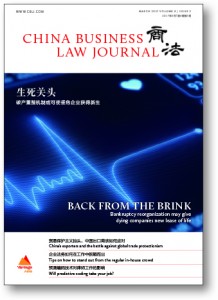The March issue of China Business Law Journal explores the complexities and challenges in the restructuring and reorganization of a financially distressed Chinese company. Tougher market competition and a constantly changing global economic climate means companies today have to brace themselves for possible insolvency – no one wishes it to happen, but a wish is not a guarantee.

Chinese exporters should also be prepared for the new uncertainties in global trading. Trade protectionism is rising in some developed markets. If that trend continues – it probably will – the world’s second-biggest economy may be one of the most severely affected victims.
Your best defence finds that trade remedy measures most commonly imposed by the US and EU on Chinese exporters are anti-dumping and countervailing duties. Experts say that steel and chemical products are among the most frequently targeted, but new sectors such as high-tech products are also prone to investigations. Chinese exporters need to have more knowledge about the available mechanisms they may use to fight back. The feature also includes analyses of some important cases.
This issue also features an article authored by Pan Qi, who retired as an associate general counsel from a multinational. In One in a million, Pan shares his years of experience on how corporate counsel can improve to acquire a new level of ability. He says the true client of in-house counsel is the company, but on a daily basis an in-house counsel to a large extent serves the company through serving business colleagues. It is important for in-house counsel to properly handle the relationship between legal and business issues when there is a conflict between the two. For an in-house counsel, the ability to prevent risks for the company is a higher-level ability.
The development of artificial intelligence is transforming the human life, including that of lawyers. Rise of the replicants explores the implications of predictive coding, an eDiscovery technology that can help legal counsel search, cull and categorize documents. While this technology has made eDiscovery much more efficient, the author of the article believes that it will continue to be more of a best assistant to the lawyers, rather than a replacement.





















